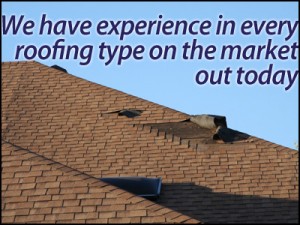Toronto Roofing Trends 2025: Sustainability & Innovation
Raising the roof: Demand will rise as green initiatives encourage clients to upgrade their roofs
IBISWorld’s Roofing Contractors market research report offers insightful industry analysis and research into the market at the national level. IBISWorld’s in-depth industry market research is presented in a logical and consistent format. The industry report contains key industry statistics, market size, industry trends, and growth and profit forecasts for a 5-year outlook period.
As of 2025, Toronto’s roofing industry reflects several key trends supported by notable statistics:4seasonsvents.ca+1ibisworld.com+1
-
Market Growth: The roofing contractors industry in Ontario is projected to reach $4.8 billion by 2025. ibisworld.com
-
Employment Figures: The industry employs approximately 12,488 individuals across 3,762 businesses in Ontario. 6wresearch.com+3ibisworld.com+3roofingcontractor.com+3
-
Sustainable Materials: Eco-friendly roofing options, such as metal roofs and recycled shingles, are gaining traction among environmentally conscious homeowners.
-
Cool Roofing Adoption: With rising temperatures, cool roofs that reflect sunlight and reduce heat absorption are becoming essential, helping lower energy costs and improve indoor comfort.
-
Solar Integration: The integration of solar shingles and panels into roofing systems is increasing, as homeowners view this as a long-term investment to reduce energy bills and promote sustainability.
-
Smart Roofing Solutions: Innovations such as smart ventilation systems and moisture sensors are making roofs more efficient and easier to maintain, allowing homeowners to monitor their roofs’ health in real-time.
-
Aesthetic Customization: There is a growing demand for unique roofing designs that enhance property curb appeal, with manufacturers offering a broader palette of colors and finishes. 4seasonsvents.ca
-
AI Integration: Artificial Intelligence is transforming the roofing industry by enabling AI-powered roof inspections, smarter project planning, and optimized material selection, leading to faster, more efficient, and safer roofing services. toronto-roofer.com
These statistics underscore the industry’s shift towards sustainability, technological innovation, and personalized aesthetics in Toronto’s roofing sector for 2025.
Industry Analysis & Industry Trends
Over the past five years, the suppressed levels of housing starts and residential renovation expenditures hindered demand from the residential construction market. However, violent storms over the period helped boost demand for roof contractor services and increase the industry’s revenue. In the coming years, sustained growth in most downstream building markets will boost demand for the industry’s services.
Have Toronto Roofing Trends changed in 2025?
The roofing industry in Toronto is evolving rapidly due to technological advancements, environmental concerns, and shifting homeowner preferences. In 2025, we expect to see a major shift towards sustainability, energy efficiency, and smart technology integration. Whether you’re a homeowner or a contractor, staying ahead of these trends can help you make informed decisions and increase the value of your property. In this article, we explore the top Toronto roofing trends for 2025, providing insights and expert recommendations.
1. Sustainable Roofing Materials
Sustainability is becoming a key focus in the roofing industry, with homeowners and businesses opting for eco-friendly materials to reduce their carbon footprint. Here are some of the top sustainable roofing options:
Recycled Roofing Products
Recycled materials such as rubber, plastic, and metal are being transformed into durable roofing products. These options help reduce landfill waste and provide long-lasting roofing solutions. For example, recycled asphalt shingles can last up to 50 years with proper maintenance.
Cool Roofing Systems
Cool roofs are designed to reflect more sunlight and absorb less heat, reducing energy costs in the summer. They are particularly beneficial for urban areas like Toronto, where temperatures can soar in the summer months. White or light-colored roofing materials are common in cool roof systems.
Green Roofs
Green roofs, which incorporate vegetation, provide excellent insulation, reduce stormwater runoff, and improve air quality. They are becoming increasingly popular in commercial and residential buildings across Toronto as part of sustainable urban development.
2. Solar Integration and Energy Efficiency
With the rising cost of energy and the push towards renewable energy sources, solar-integrated roofs are gaining traction in Toronto.
Solar Shingles
Unlike traditional solar panels, solar shingles blend seamlessly with the roof, maintaining the home’s aesthetics while generating renewable energy. Brands like Tesla and GAF offer advanced solar shingle solutions that are becoming more accessible.
Energy Storage Solutions
Homeowners are pairing their solar roofing systems with battery storage to maximize energy efficiency. These batteries store excess energy generated during the day for use at night or during power outages, reducing dependence on the grid.
Smart Energy Monitoring
New technologies allow homeowners to monitor their energy production and consumption in real-time through apps and digital platforms. These smart monitoring systems optimize energy usage and help homeowners save money on electricity bills.
3. Metal Roofing’s Rising Popularity
Metal roofing is gaining popularity in Toronto due to its durability, low maintenance, and energy efficiency.
Longevity and Durability
Metal roofs can last between 40-70 years, significantly outlasting traditional asphalt shingles. They are resistant to extreme weather conditions, including heavy snowfall, which is crucial in Toronto’s winter climate.
Energy Efficiency
Metal roofs reflect solar heat, reducing cooling costs in the summer. When combined with proper insulation, they also provide excellent thermal regulation during winter.
Aesthetic Versatility
Modern metal roofing comes in various colors, textures, and styles, allowing homeowners to achieve a contemporary or traditional look while benefiting from metal’s advantages.
 4. Smart Roofing Technology
4. Smart Roofing Technology
Technology is revolutionizing the roofing industry, making it easier to monitor, maintain, and optimize roofs.
Leak Detection Sensors
Advanced sensors can detect leaks and moisture accumulation before they become major problems, preventing costly repairs and water damage.
Weather-Responsive Roofing Systems
Smart roofs can adjust their properties based on weather conditions. For instance, thermally responsive coatings can change their reflectivity depending on temperature, improving energy efficiency year-round.
Drone Inspections
Roof inspections are becoming safer and more efficient with drones. Drones equipped with thermal imaging cameras can detect hidden damage, moisture buildup, and insulation issues, allowing for proactive maintenance.
5. Aesthetic Customization
Homeowners are prioritizing unique roofing designs to enhance curb appeal and property value.
Bold Colors
Traditional black and brown shingles are being replaced with bold colors like deep blues, greens, and reds to create eye-catching designs.
Mixed Materials
Combining different roofing materials, such as metal and asphalt shingles, adds texture and depth to a home’s exterior.
Architectural Shingles
These high-quality shingles add a dimensional look to roofs, mimicking the appearance of slate or wood shakes without the high cost and maintenance.
6. Climate-Resilient Roofing
Toronto experiences harsh winters and unpredictable weather, making durable, climate-resistant roofs a necessity.
Hurricane-Resistant Materials
Impact-resistant shingles and reinforced metal roofs can withstand strong winds and hail, reducing damage and repair costs.
Fire-Resistant Roofing
Materials such as clay tiles, metal, and fire-rated asphalt shingles provide extra protection against fire hazards, offering peace of mind to homeowners.
Improved Insulation
Better insulation materials and techniques help regulate indoor temperatures, reducing heating and cooling costs while increasing overall comfort.
7. Enhanced Roofing Warranties
As materials and technology improve, manufacturers are offering better warranties to provide long-term value to homeowners.
Extended Coverage
Many roofing products now come with warranties extending up to 50 years, ensuring durability and peace of mind.
Transferable Warranties
Some manufacturers allow warranties to be transferred to new homeowners, increasing the property’s resale value.
Maintenance Plans
Roofing companies are offering maintenance plans as part of their warranties, ensuring roofs remain in optimal condition through regular inspections and minor repairs.
8. Addressing Labor Shortages in the Roofing Industry
The roofing industry is facing a labor shortage, leading to increased wages and a push for workforce development.
Apprenticeship Programs
More roofing companies are investing in apprenticeship programs to train new workers and close the skill gap.
Competitive Compensation
Higher wages, better benefits, and career growth opportunities are attracting more skilled laborers to the industry.
Advanced Training Technologies
Virtual reality (VR) and augmented reality (AR) training programs are being used to educate roofing professionals on best practices, safety procedures, and installation techniques.
Conclusion
The roofing industry in Toronto is undergoing major transformations, focusing on sustainability, technology, and resilience. Whether you’re a homeowner looking for an energy-efficient solution or a contractor adapting to new trends, understanding these developments will help you stay ahead in 2025. Investing in quality roofing materials and smart technology will not only enhance your property’s value but also contribute to a more sustainable future.
Looking for expert roofing services in Toronto? Contact Toronto Roofer today at (647) 847-8826 for a free consultation and find the best roofing solutions for your home or business.











